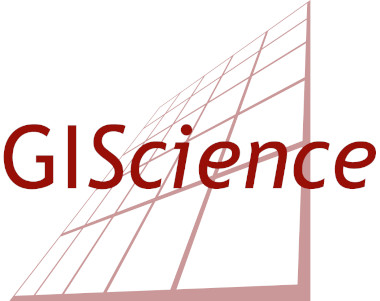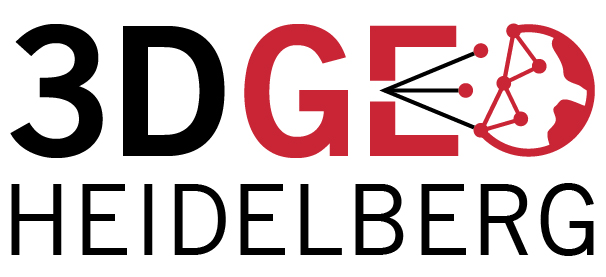Month: March 2019
-
Neues mFUND Project: Temporal Access Restrictions for Dynamic Ultra-Flexible Routing – TARDUR
Problemstellung Bis dato wird eine wichtige Eigenschaft infrastruktureller Straßennetzdaten wie OSM in noch keiner frei verfügbaren Routing Anwendung voll ausgenutzt: zeitliche Restriktionen auf Straßen und Wegen, wie etwa tageszeit- oder saisonale Fahrbahnbeschränkungen. Dies ist unter anderem für Transport-Logistik-Firmen für ein effizientes Flottenmanagement (z.B. zeitlich variable Fahrverbote für Lastkraftwagen) von Bedeutung, aber auch im Hinblick auf eine…
-
The influence of the OSM mappers’ cultural backgrounds on their mapping behavior
In order to analyze the quality of OSM data, a study at GIScience Heidelberg investigated the influence of the mappers’ cultural backgrounds on their mapping behavior and hence questioned the general validity of semantic (street) classifications in OSM. Nepal was hit by a series of earthquakes in April 2015. The OSM community quickly reacted by…
-
Brand new 3DGeo logo!
The 3DGeo research group has now a brand new 3DGeo logo! The logo is one result of our recent retreat to Lochau. And here it is: The creative “o” represents the process from raw 3D data via various data models to real-world phenomena – or vice versa. Isn’t that cool? Check out the logo on…
-
Analysing semantic associations in VGI data
Volunteered Geographic Information (VGI) such as OpenStreetMap (OSM) can be a rich resource for many applications. Therefor VGI-projects have to mitigate between the requirements of the the volunteers and the machines. On the one hand, the data format should be simple and general in order to make contributing to the project easy for the volunteers.…
-
Empower Humanitarian Mapping with Deep Neural Networks to Detect Human Settlements
Recently, earth observation by satellites has shown great capability in supporting a range of challenges such as disaster assessment, agriculture monitoring, and humanitarian mapping. MapSwipe, as a humanitarian mapping app, provides a crowdsourcing platform to collect volunteered geographical information (VGI), in order to generate the demanding base map of human settlements for better planning of…
-
New features in OpenRouteService Interactive documentation
The ORS Playground is an interactive API documentation application that allows the users to explore and interact with all the API services. The elements, inputs and forms are built from a swagger documentation file. Since the first release of the new OpenRouteService API Playground in November we have being worked on it to make some important improvements. A good part…
-
GIScience/HeiGIT and TdLab Geographie at german IPCC conference
GIScience will be present with two participants (Nicole Aeschbach, TdLab Geographie) and Sven Lautenbach (HeiGIT) at the german IPCC conference. Our contributions aim at highlighting the potential of GIScience and transdisciplinary research for climate change adaptation and climate change mitigation. Examples are the german climate protection map, green or pleasant routing (e.g. meinGrün ) and…
-
Mapping against Racism – disastermappers heidelberg/GIScience bei den Internationalen Wochen gegen Rassismus in Heidelberg 2019
Bereit seit den 1960ern werden von den Vereinten Nationen initiiert und von den UN-Mitgliedsländern zunehmend unterstützt, jährlich Internationale Wochen gegen Rassismus zum Thema Integration, Austausch und Bewusstsein gegen Rassismus organisiert. Vom 11. bis zum 24. März finden gemäß dem Motto „Europa wählt Menschenwürde“ Konzerte, Lesungen, Workshops usw. statt, um “den nationalistischen, rassistischen und autoritären Angriffen…
-
GIScience/HeiGIT at Global Land Project open science meeting
GIScience/HeiGIT member Sven Lautenbach is hosting together with Jonas Schwaab from the ETH Zürich a session on Multi-objective optimization approaches to support visioning and decision-making in land-use system science at the 4th Open Science Meeting of the Global Land Programme April 24-26, 2019 | Bern, Switzerland. The session aims at approaches that study the potential…
-
Successful 3DGeo group retreat
The 3DGeo research group recently retreated to Lochau, Vorarlberg (AT). In intensive sessions throughout the three days, the members focused on future research, improving working within the group and external representation. A visit to Leica Geosystems in Heerbrugg (CH) complemented the experience, where they were able to visit the manufacturing line for Airborne Laser Scanning…
-
Addressing the challenge of localizing SDGs with openrouteservice
Where is the next health center? What areas show less accessibility to health centers and are therefore the most vulnerable? In 2018, the openrouteservice team already illustrated how these questions related to vulnerability can be addressed with openrouteservice APIs, at that time for disaster prone regions in Madagascar. Learn more here. Also at that time…


